#these sessions actually happened in a pathfinder 2e campaign
Explore tagged Tumblr posts
Text
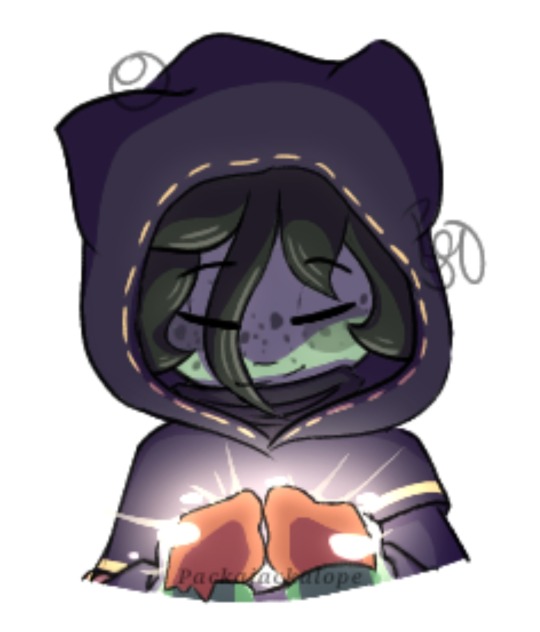
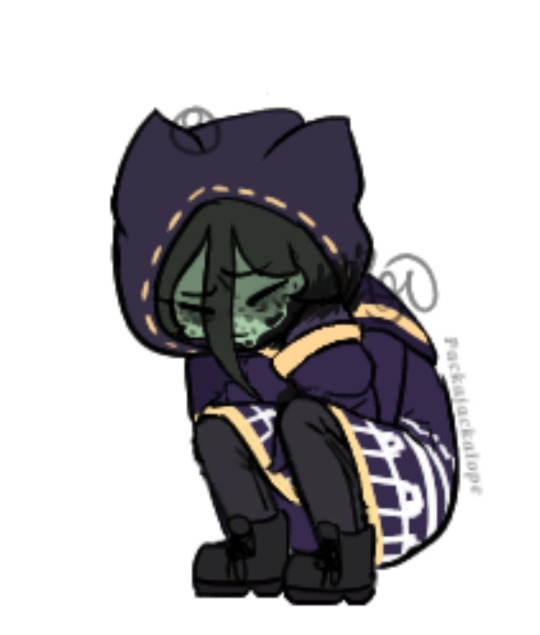
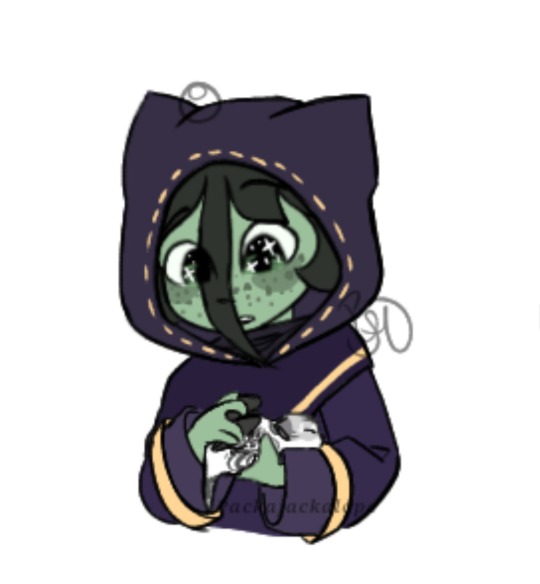
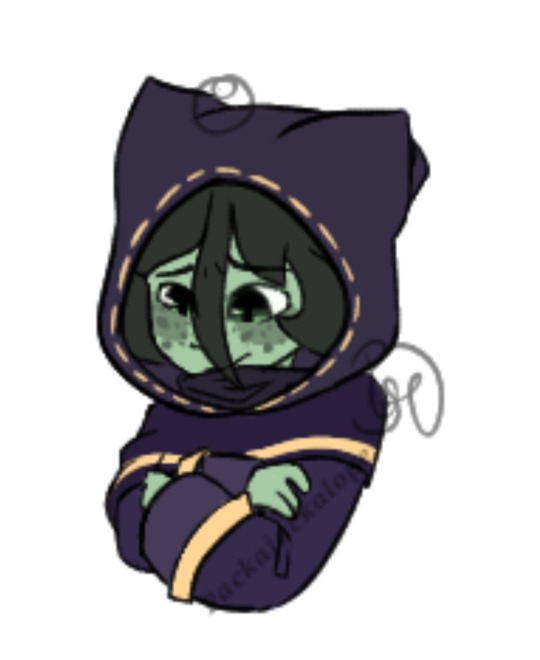
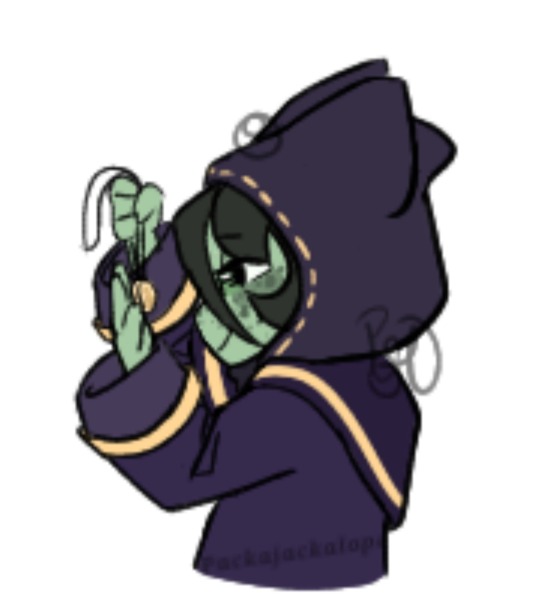
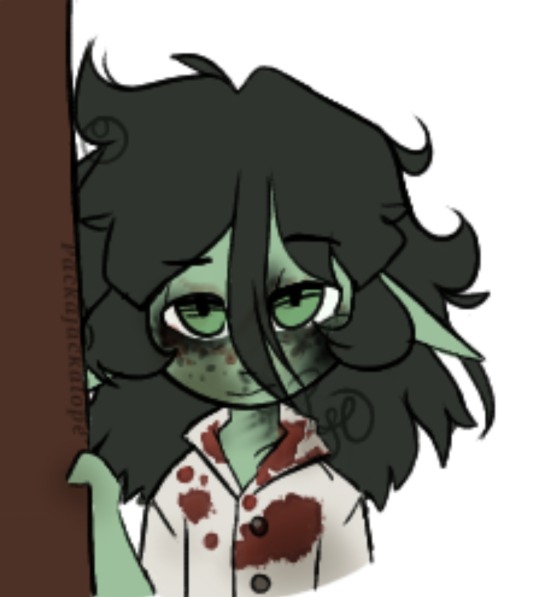
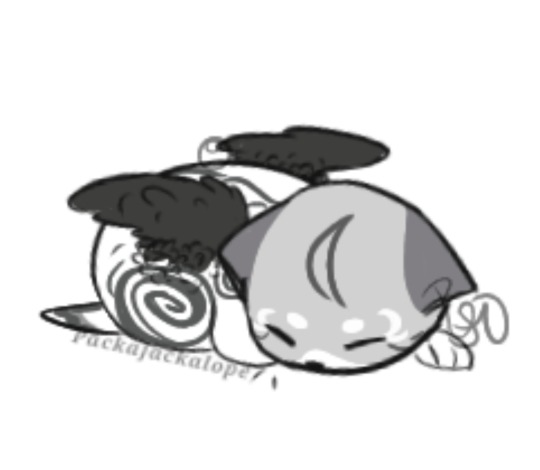
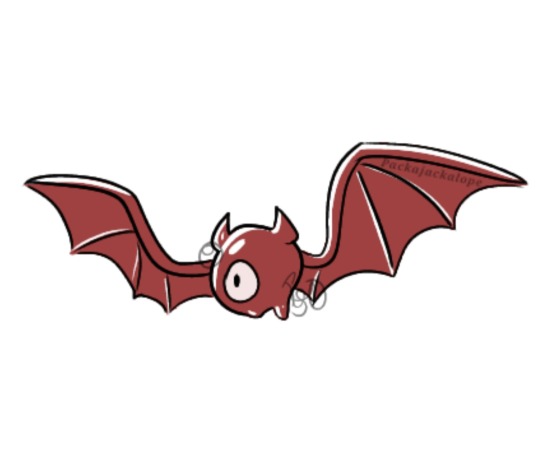
Naevys doodle dump!! Lots of little moments from sessions, since my group has been playing a ton lately.
#these sessions actually happened in a pathfinder 2e campaign#so theyre a homebrew warlock made for pathfinder#but they were initially made for dnd 5e#tw blood#cw blood#blood#tw bruises#tw bruising#cw bruises#brusies#naevys#doodle dump#doodle sheet#doodle#oc doodles#dnd warlock#warlock#dnd character#dnd oc#dnd art#pathfinder character#pathfinder#pathfinder 2e#ttrpg character
3 notes
·
View notes
Text
Dungeon Dive Bar Crawl - Heck Knights In Space!
As we announced last week, we’ll be running a 24 hour stream for Extra Life on November 6 and 7! Check out that link for some more information on the stream and how to tune in.
Each Friday until the event itself, we’ll be publishing an interview with the GM of one of the adventures along with other material to get everybody super jazzed for the stream.
This week we’re talking to Megan, though you may know me better as Retha ;)
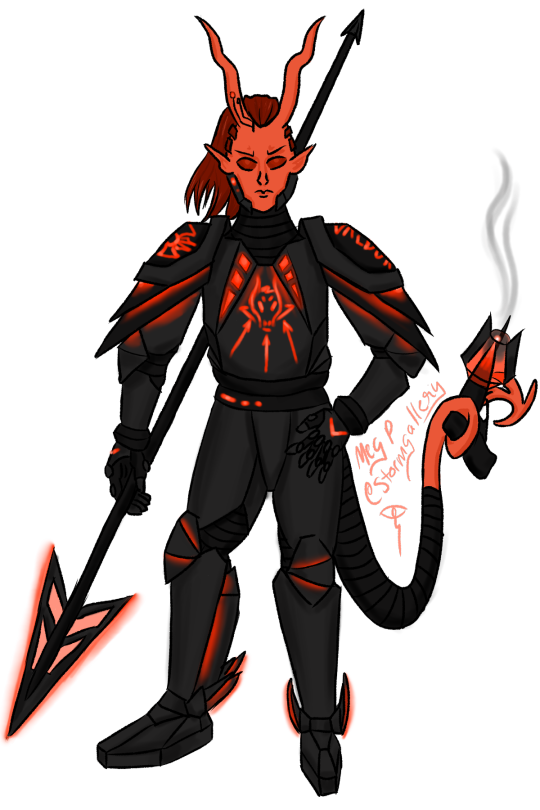
How long have you played TTRPGs in general? About five years now. I'd heard a lot about them beforehand, but could never find a group because no one in my tiny hometown was a nerd like me. Finally, in my freshman year of college, I found a group of nerd friends, including Alex, and started a D&D game. 5e was pretty brand-new at that point, so we started in 4e and then changed over not long after.
What is your favorite thing about TTRPGs overall? I love the character design. I'll usually start with a build and work out the concept as I go, but as I build further I usually find the character's personality solidifying in my head, and it's only a matter of time before they have a specific appearance, too. I'm an artist, after all.
How long have you played Pathfinder and Starfinder in particular? I've been playing Starfinder basically since it was released. I was barely familiar with Pathfinder at the time; I'd played a game with some friends that fell apart after about four sessions, and at the time I wasn't a fan of all the rules and options. Starfinder seemed a bit more reasonable on the options side of things, though, since it was brand new.
I came over to Pathfinder via the lore. I've always been interested in divine casters, and I took an interest in the gods of Pathfinder as they were represented in Starfinder. It's a long story, but I started writing a Starfinder fanfic that had me digging deep into Pathfinder lore, and eventually I got interested enough to actually try to play the game, theorycraft some builds, and get involved in the community of a certain other Pathfinder podcast.
Have you ever been the GM of a campaign or module before? I'm not quite a "forever GM," but I have GM'd a lot. My GMing resumé includes a D&D 4e homebrew that turned into a 5e homebrew, a 2-year Starfinder homebrew, a running play-by-post of the Runelords trilogy, Against the Aeon Throne twice (plus a follow-up homebrew adventure one of those times), an attempt at Hell's Vengeance, a rewrite of Tyrant's Grasp for an all-divine party, the Pathfinder 2e adventure Agents of Edgewatch, and countless one-offs. (Notable one-offs included an all-Shelynite party braving Nidal and a tournament of universes where characters from the Forgotten Realms, Eberron, and Golarion came together to fight Tiamat.)
What is your favorite part of being a GM? Getting to make up my own stories or add my own elements to prewritten ones, and ultimately, getting to decide what system we're playing, though if we're doing a long-term campaign the players get some say in this too. I love setting up opportunities for roleplay. I also like seeing what characters people bring to the table, especially when they have a lot of backstory I can work into the campaign.
What will you be running for the Dungeon Dive Bar Crawl? Can you tell us a bit about it? I'm running a homebrew scenario I've temporarily called "Heck Knights In Space." As the name might suggest, I required all the other players to be Hellknights for this game, which mostly just translates to lawful-aligned in Starfinder, since there's only one archetype for it and I didn't want to force everyone to take it. I don't want to spoil anything for the players if they happen to be reading this, but the module's premise is centered around exploring an abandoned Hellknight Citadel that's been broken into and involves both starship and ground combat.
What are you most excited about when it comes to Heck Knights in Space? Getting the chance to combine two of my favorite things-- Starfinder and Hellknights. As far as the module's content goes, there are some enemies that I've been wanting to use for a while now, as well as some I built myself.
Why do you like Hellknights so much?

...In all seriousness, though, I'm a very lawful person IRL, and also an edgelord. I first read about Hellknights in the Starfinder Pact Worlds book, and basically instantly fell in love. On a deeper level, I'm intrigued by the different Orders and their different philosophies-- I definitely don't like all of them. You've got everything ranging from a group of detectives whose specific objective is to take out bad-faith actors, to a group of bounty hunters that operate across multiple star systems while using their codes as protection from those systems' own enforcement organizations, to a group whose main "thing" is finding new and improved ways to summon devils and work infernal magic. And they all operate under the same overarching codes, the Measure and the Chain, with what I can only imagine are vastly different interpretations.
What do you like the most about the Starfinder system? The lore! The flavor! Watching people try to come up with a balanced party for starship combat (or not try, and then just utterly fail in starship combat... I’ve had that happen in a few Society games, oof) is always a good show. Building my own enemies to fit the campaign is always fun too, especially boss enemies.
Can you explain how starship combat works for the viewers? Screams internally well here goes nothing. PCs operate from within a starship and choose a role on the ship. The only part of their character build that's really relevant to what they're doing is the skill modifier they're using for that role. It usually becomes a team effort, though, because it's a collaborative game.
There's different phases in which different roles operate, though the captain and chief mate can operate in any phase they need to.
Engineering phase is first, and gives ships' engineers and magic officers a chance to repair any damaged systems or boost operational ones to give a bonus to anyone using them this turn.
Next is the helm phase, where pilots roll off for initiative. It's a bit like Star Wars X-Wings in how it handles initiative: the lower roll actually goes first, because whoever acts second has the positioning advantage. (I think at one point Paizo admitted that X-Wings inspired them). Also in the helm phase, the science officer can scan the enemy ship to gain info about it, or can move your shields around to defend the firing arc the enemy ship is facing.
Finally, there's the gunnery phase, where ships attack each other. Obviously, the gunners act during this phase.
It sounds really complicated, but it's easy enough to understand once you get going, as long as you understand what your role can do!
What do you think players are the most excited about? Depends on the player. I know David is super excited about the starship combat system. Alex is more interested in ground combat; he has a technomancer build he's been theorycrafting for a while. Sam is excited about the huge variety of race options; last I heard he was trying to make fetch shakalta happen. Though if that doesn't work, we might see a familiar face…
What do you think our viewers will enjoy the most? If my brother-in-law is any indication, the callbacks to a specific group of Hellknights in Pathfinder will be pretty fun. ;)
And that’s it for this week’s interview! Tune in starting at 9PM Central on Friday November 6 for the stream and in the meantime, join us at the bar for new Dungeon Dive Bar episodes every Monday at midnight Central!
#paizo#extra life#pathfinder#podcast#tabletop#tabletop gaming#tabletop rpg#tabletop roleplaying game#pathfinderrpg#Pathfinder Roleplaying Game#Pathfinder 2E#pathfinder 1e#starfinder#Dungeon Dive Bar#dungeondivebar
5 notes
·
View notes
Text
D&D Frustration
A long time ago, round about 2007, I made a D&D character. A bard with a several-pages long backstory, crafted over several months, a character that I loved so very much.
And then I tried to play her in a game, and the game quickly died.
I tried again, and that game died.
OK, I thought. I’ll get some friends together and even a DM who made the campaign specifically with my character in mind.
The DM and one of the players got into an argument about THE PRICE OF HORSES about five sessions in, neither one of them would budge about it. We never had another session because of the horse-price argument.
A couple of years later, I wanted to play that character in my first 4e D&D game with my main friend group, but the PHB2 wasn’t out yet. So I played a rogue, who was also a lovingly-crafted character, (actually a re-imagining of the very first D&D character I ever rolled back in 2e) and happily played her for five years, but always wanting to play that bard.
I joined a couple of other random campaigns in that time, often trying to play that Bard, but no game ever stuck. Including the one game that turned out so badly it’s still my go-to “terrible campaign” story when comparing terrible D&D campaign stories.
The next campaign I played with my main friend group was a Star Wars game, so I made a cool pilot/shitty Jedi character who I loved.
And then we started a Pathfinder game, and I excitedly submitted my bard idea to my DM, who did such a great job honoring my rogue character.
The pathfinder game never really touched on our character’s backstories much and died around level 7. So there went my opportunity to play that bard I loved so much with my main friend group. I wasn’t happy, so instead, I joined an online game to play her.
And that game was GREAT. It was everything I ever wanted for that character. Finally, after over 10 years and probably close to a dozen tries to play her. The DM in that game flaked, but one of the players took up the DM reins for almost a year and a half we’ve been regularly playing. I LOVE that game and the other players so much and it was truly amazing.
And we got to about level 7, and our characters' backstories were starting to be explored, and we even got to the one session where some of the Big Reveal stuff about my character was happening. I was so excited, I’d played out how this would happen in my head SO. MANY. TIMES. And how it was happening was so great, and so much fun.
And a few weeks ago the DM announced he was having personal issues, and put the game on hiatus. So I picked up the reins to run a mini-campaign until the DM was back on his feet so we could continue our game, which ended on a HUGE cliffhanger for not only my character but one other character as well.
....and the DM announced he wants to start a new campaign instead of continuing our old one.
I’m... honestly kind of devastated about it.
I honestly kind of am not even sure I want to play anything else in 5e. Like 5e is fine, but none of the character classes really excite me anymore. I feel like between CR, TAZ and things I’ve already played and DM’d in 5e that I’ve seen just about everything the system has to offer. I also play in Starfinder, Pathfinder 2, 13th Age, and D&D 4e games and gotta be honest, I find all of those more interesting than 5e. I don’t want to not play with these players, because I love that group, but I loved THAT campaign with THAT storyline so much.
And I get that the DM wants a fresh start. But I’m... I felt like this is it. After a dozen years this is finally the game where this character really gets to LIVE. And I honestly felt like that character was more “alive” than any character in any game I’ve played in since that rogue in 4e, and before that a bard I played in 3.5 for several years. There’s characters you play that are like “Yeah this character is fun and I’m enjoying this” and there’s characters that... like claw into your soul and become a part of your narrative. I’ve played a lot of fun, good characters I enjoyed and loved, but only Annotea and Annwyl and I felt like this one, were a part of that digging deep in your soul thing for me. And I loved where THAT campaign was going and the other characters in that game so much, and I’m going to MISS THEM. I don’t know if I can continue trying with this character after this. I felt like her story was being told and now maybe it never will.
I don’t know really how to approach this with the DM. He has every right to want to start over after his break, especially for the reasons he took the break, but... it’s honestly kind of breaking my heart that he wants to do this. And if his heart isn’t in that campaign anymore, how fun would it be anyway?
For now, I asked for a couple more weeks to finish up my mini-campaign that I’m DMing, and he joined with his own character tonight. And it was great. But I have to decide what I want to do in the next couple of weeks, if I can get over my deep disappointment and find another character to play and enjoy.
3 notes
·
View notes
Text
Day is a vestigial mode of time measurement
Prelude and definitions
There are a lot of ways to play tabletop RPGs.
Somebody out there is nodding their head, thinking about D&D 3.5 and 5e and Pathfinder and maybe even E6, but we can go broader. Some tables run entirely oneshots, games with no recurring characters from week to week. Some tables stick with one ruleset the entire time they’re together, others swap rules after each campaign, still others swap rules half a dozen times in a single story arc. Some tables are comprised of close friends and family, others of strangers who don’t interact apart from the game. Lately though, I’ve been thinking about one style of play in particular that I know a lot of people highly value: Indefinite duration, bounded, high-context campaigns in tables with low to negligible turnover and frequent regular sessions.
I just threw out a lot of jargon there and frankly half of that jargon are terms I’ve only really seen myself use, so what do I mean?
Indefinite duration games don’t know how long they’re going to last. They can’t tell you they’ll be done by June 16th, or after fifteen sessions.
Bounded games do actually (hypothetically) have a planned end. Some bounded games never actually reach their intended end, and all games eventually stop even if they’re unbounded. This is easiest to see in the shape of the arcs- take Avatar: The Last Airbender, which (from practically the first episode!) sets up a clear goal for the protagonists and has a discernible beginning, middle and end. If AtLA had gotten canceled after the first season, there would be a clear sense of something missing. Buffy The Vampire Slayer on the other hand could probably have run indefinitely, and Supernatural looks like it plans to.
High Context games are hard to explain to an outsider, as each session interrelates to the next. Marvel Netflix shows and the webserial Worm are high context- a random episode of Jessica Jones, shown to someone who hasn’t seen any others, makes relatively little sense because its character arcs are built up over many prior episodes. The TV show The Twilight Zone and the Redwall books are low context: sit down to any individual example of those, and you’ll be able to understand what’s going on just fine as there’s no connecting thread between them. High context games almost always require...
Low Turnover tables, where the same faces are there every session, and when a player joins that player is usually in for the long haul. Introducing new characters usually takes a few sessions or more to integrate into the group, and there’s almost always a unique story reason for them to join. A player leaving a low turnover table is usually given a grand sendoff if the departure can be predicted in advance, or becomes a strange plot hole if the departure is sudden.
Frequent sessions is a somewhat fuzzy term. Here, I’m using it to mean sessions that happen every week.
Regular sessions happen at the same time and day, like every friday night or every sunday morning.
Advantages
There are a lot of advantages to this setup. Bounded and indefinite games grant the GM a grand canvas on which to write their story; the tabletop versions of Lord of the Rings, Worm, and the Wheel of Time are all expansive tales that would not work if their length was constrained or their endings neutered. (A game can be long but still have a definite duration- I could design a campaign to run for exactly five hundred sessions- but I don’t think J. R. R. Tolkien could have told you from the start how many pages he would need for the Lord of the Rings. The tale, as they say, grew in the telling.) Characters can undergo great changes, and corruption or redemption can be woven into the story subtly.
High context and low turnover means that you can drop details into the early parts of the game and pay them off later in ways that would be blatant and obvious if done over the course of a single session. It is a strange experience to look back from Mount Doom and realize how far we are from the shire, and it is strange to return to Brockton Bay as Gold Morning rises.
Frequent sessions are needed both to keep the events of the story fresh in your player’s minds and to allow reaching the end of such a story- I would roughly estimate that the Exalted game that I was part of involved around three hundred sessions, played over the course of seven years! If it was once a month instead of once a week, we would have taken twenty five years to cover the same ground. Finally, if you are going to play every week, then it can be convenient to pick a day and time then stick to it, rather than renegotiating four or five schedules every week.
Disadvantages
The primary disadvantage is that this is an incredibly fragile setup.
When you are planning games over the course of nearly a decade, you will find the lives of the people involved change. The Exalted game of this form I was in started in the early years of my bachelor’s degree; we all graduated and scattered across four or five different states. Gaming online helps with distance, but people get married (granted, that one’s less of a problem if players marry each other or the GM) or change jobs (we lost a player to exhausting manual labor) or just change tastes. In sufficiently high context games, these changes are really hard on the game: A reveal near the end may be unintelligible or worse, unimportant to players who weren’t there in that college apartment five years ago when this all started. Missteps and gaps are hard to recover from.
You will also find the vagarencies of system will be a problem. In a long enough run, all outliers will happen eventually. Even if no players drop out, a string of terrible rolls can kill important characters. You may even come to find that every single original character has fallen and been replaced. Can the system even handle that much play and advancement? (D&D has a few shift changes between level 1 and level twenty, and then it just starts getting weird. A level 60 Wizard is essentially an incoherent concept in 3.5.) Errata will be released for your game: do you adopt it? What if an entire new edition of the system is released? Updating Dresden Files to Fate Core is perhaps sensible, Exalted 2e to 3e is a judgement call, but would D&D 4e to 5e make any sense?
Stories (at least in the western tradition) have beginnings, middles, and ends. Sub arcs of such a campaign can be longer than entire storylines in a shorter game, providing valuable opportunities to practice, but the fact remains that I’ve run more complete games of Paranoia than I’ve run complete games of Exalted. Practice is valuable, and long form games are hard for a GM to practice and perfect. Players also gain experience, and may find that a character has resolved their story or that they wish to make a new, more complex character.
This is hard, is what I’m saying.
Solutions
I’ve finished (. . .ish) one game like this where I was a player, and am moving into the end steps of another I’m running. I’m contemplating starting a new one once the game I’m running finishes. One of the greatest GMs I know swears by this format, and doesn’t want to do anything else. As hard a problem as this is, I would like to find solutions. Some issues can be solved by relaxing one of the requirements, but we’ll assume for now that these are ironclad.
Where do you get your players? Perhaps one of the more valuable things I get from occasionally running one-shots or short-throw games is finding new players, who I can evaluate and then consider for future longer games. It’s not just what they’re like while playing, but how often they show up to games or how they interact with other players. Crosstalk can also be a sneaky way to onboard players: Players talk about the games they’re in, and my S.O.’s Monsterhearts table has heard plenty of details about our Exalted and D&D games. That can be a place to draw new players who are excited about your game and who are already informed as to what’s been going on in your campaign.
Gaps and missed sessions are probably going to happen, but you can minimize the damage they do. Consider: what do you do if a single player can’t make it? If you shrug your shoulders and cancel for that week, you preserve the expectation and pressure on each player- but you also leave everyone else with an empty saturday night, one that perhaps they wish the could have made plans for. This can compound: Someone has a wedding to attend this week, and then next week you’re not in the right headspace to GM, then the next week someone’s power is out, and the week after that you find that a player has a date because “I didn’t think we’d wind up gaming that night.” The question isn’t “do I want to do this other thing or attend the game this week” it’s “how much do I value the other thing times the odds it actually happens, vs how much do I value the game times the odds it actually happens.” If the odds get bad enough, your game can be the highlight of your player’s week and still lose out.
Letting everyone know as early as possible is good, but you can also mitigate this by having something else to do that night; run a oneshot or a side campaign, play a videogame together or some Settlers of Catan, or even a social night where you sit around and shoot the breeze. Anything to prevent the train of thought that goes “oh, I guess Bob isn’t around so we aren’t gaming. Darn. Well, I guess I’ll spend the night alone- kinda wish I’d said yes to that cute date. Next time, maybe!” If you do this well enough, you can actually add people: In high school my table ate pizza and played Halo friday night if we didn’t have the numbers to play RPGs, and we wound up inviting a guy in the neighborhood over when we did. We found that he actually penciled in gaming at my place to his schedule every friday, and as long as he had that time set aside anyway did he want to learn to roll some dice? (He did, and still does, and is part of my monday night table.)
On that subject, how do you handle it when someone cancels? It’s best to give everyone as much information as you can as early as you can, because it lets them take advantage of the gap and prevents them feeling like they’re “losing” a night. (This is especially important if you game on a hotly contested timeslot: most people don’t have a lot competing for their Tuesday evenings, but a Friday Night is the centre of a lot of people’s social lives.) If you want that though, I think you need to be kind and understanding when you get that cancellation: if you get angry at people for missing, then they delay longer and longer to tell you (either in case circumstances change, or just putting off that anger) and you can’t give other people early warning. You probably don’t want people to come to view your game as an obligation, but feeling punished for lack of attendance can cause that to happen.
So, you’ve arranged things so that whether there’s a game or not, everyone looks forward to Sunday Night every week, and people tell you a couple of weeks in advance when they aren’t going to be able to be there. Why are your players hoping your game does run? In writing, there’s an idea of “the page turner” where each situation leads to a question of what happens next, and the reader can get sucked into wanting “one more chapter!” This effect can also be recognized in videogames (“one more turn!” *birdsong outside* “Gah, it’s morning!”) and even TV shows. I think it’s possible to make this happen in tabletop games. If you’ve got a tight plot full of twists and intrigue, you can get it the same way you do in writing. If you’ve got a mechanical system that’s genuinely *fun* to engage in, that can be a great too. (My Blades in the Dark table would often ask for a second heist right after we finished the ‘session’, because they wanted that next piece of Turf they’d just unlocked access to or because c’mon, we just need two more Rep to go up a Tier!)
We can do better than that though. I think a seriously underrecognized source of danger in long-running campaigns is a weak middle, where you spend a couple of sessions in a row building up or setting tone and it’s only afterwards that players look back and see the unfolding tale as compelling. A question I ask myself after each night as part of my usual evaluation is “what made this session great?” The kinds of answers vary depending on the group and the system, but if there isn’t an answer then that’s the sort of thing I try very hard to fix! When I sit down to plan a session, I think about something cool that I can make sure is in there. Don’t get me wrong, ‘filler’ episodes do have an important purpose sometimes- they connect with the day to day parts of your character’s lives, they let you sneak in setup and Chekov’s Guns, they give a chance to roleplay and let characters bounce off each other, heck Chuubo’s Marvelous Wish Granting Engine is basically a game built around filler episodes- but keep your eye on the ball. What do your players love doing, or love telling stories about afterwards? Is there a reason you can’t do more of that next session?
I know when the long Exalted game that closed up recently was shifting into endgame, a big reveal came that. . . well, it landed, and we noticed, but it took far longer to percolate and had to be spelled out more than I know our GM wanted. The pacing of tabletop games, even played every week, is different than the pacing of a book. I read Worm (a simply enormous web serial) over the course of years as each week a couple of chapters were released, and the twist caught me by surprise. I know someone who read it over the course of a month or so, because they got into it once it had already concluded and they saw it coming a mile ahead of time. If a player gets blindsided by something that was telegraphed and set up, pause, and consider whether it was set up four years ago. Something I’ve taken to doing to combat this is writing down, at the end of each session, a paragraph about what happened.
I’ve found this is helpful for me as a GM, but also really helpful for the players as we resume after a break. (Plus, it’s cool to read!) Even if you have a full log of what’s happened (a text log because you play via chat, or a video archive because you record sessions) people can scan the summary faster than they can look through an entire log. This helps catch new people up, this is a good tool for clarifying my thoughts as a GM, this is a neat place to screw with your players (someday, I am going to run a Cosmic Horror long form game, and my players are going to trust the summaries I’ve written, and I am going to weave an elegant lie into that record, and this is going to work even though I said I was going to do this right here.) and hey, you can even end each summary with a question that hypes up what happens next.
Compromises
If your vision of how you want to run your game is absolutely how your games must be run- Indefinite duration, bounded, high-context campaigns in tables with low to negligible turnover and frequent regular sessions- then this is where we part ways for a bit. Do a search for “concluding thoughts” and we’ll catch back up below. If you think you could budge a bit on those requirements though, or if you just want to see me go through the exercise, so be it, and fall on. I think there are tremendous gains to be made by removing even one of these requirements.
Finite Duration. I’ve been dating my S.O. for six years now. We’ve been asked more times than I can count “so, when is he going to pop the question?” and I’ve been deflecting the question with less and less grace and good humour as things go on. The truth is, I think about swearing a holy vow to be with them “til death do us part” and I think about value drift, and I think about how I am actually deeply transhumanist and how I plan to live to see the last star go out, and I think about the fact that sweet light there are seven billion people on this planet and I find around a billion of them to be hot, and about how zero and one are not probabilities, and I can’t bring myself to do it. And then I think about how I do want to be with them in five years, and in ten, and how I do want to settle down and find a house that fits us both and raise children and see them off and still love each other, and how I could swear to be with them for that many years.
My saturday night D&D group just fell apart, and for a moment towards the end I thought about swearing, with all the force of an oath, to be there and ready every single saturday until it concluded in an attempt to forestall this. And I thought, very clearly, “that could mean never having a weekend vacation or a saturday night date for the rest of my life, you know how this GM likes long stories.” So I didn’t commit, and maybe I should have. But if I could have looked and seen an end date, I would have felt much better about making that commitment. A finite duration campaign can draw a stronger and more reasoned commitment than an indefinite one.
Unbounded. You know what’s a great book series? Redwall. And I’m not just saying that because I’m a sucker for castles and badass swords. (Though ya know, those are both great.) One of the great things about Redwall is it could have kept going forever. A Redwall campaign could go arc after arc, and have clean places to step out or step back in, and still come together. Someday I want to run a game with the progression like Redwall-> Mossflower -> Martin the Warrior -> The Legend of Luke and it will be awesome. You know what else is great? Mythbusters. I mean, every episode works all on its own, and that makes it really tempting to binge watch. That feeling of no commitment that works out to being stronger than any promise of a sixteen season masterpiece.
An Unbounded game provides a real bulwark against mid-act duldroms. If every session or every arc is going to be basically like this, then everyone involved can get their acts together about making “basically like this” be awesome. One of my greater lightbulb moments came from discussing Star Wars, when someone pointed out that you can in fact kill Darth Maul one night, General Grievous the night after, and Count Dooku after that and there’s nothing stopping you from lining up another kickass saber dual and sith lord every session after that. We don’t need to spend a whole session talking about how much we hate sand.
Low-Context. I wanted to come up with something for everything on this list, but honestly, just swapping to low-context and not changing anything else doesn’t seem to give you any benefit that I can see. It might be prefered by some people, but more often high-context is an advantage you get from the other components being in place.
High Turnover. If you have solutions in place for maintaining the high-context capabilities of your players even with high turnover, then high turnover (or even the capacity for it!) can help ameliorate the issues of this general form of campaign marvelously. If it is straightforward and not at all unexpected for a player to drop out for a few months and then resume, or for a new player to join for a while before leaving, then you can give each player the benefits of a finite campaign while still reaping the benefits of having long timescales or ongoing plots. Taken to the extreme, a game like Blades in the Dark can operate with a completely new roster of players every single night and still work, the adventures of the crew as a whole only glimpsed in part by each player but still represented in the tapestry of stories they tell. It offers a way for a table to mix and match expectations- perhaps two players are always there every night, and the other two seats are filled by a rotating array of sidekicks and accomplices. (This is fitting for the superhero genre, but of course the same format can be used by anything from pirates to westerns to a dungeon crawl.)
Infrequent Sessions. Momentum in storytelling is important, but so are the many other demands on most of our time. A full time job, chores and appointments and exercise and socializing outside of gaming and any number of things eat into our free time. Heck, sometimes even if you love the table and love the game you want a break for a week. Longer gaps between games give more space to the other things in our lives, and they also make sharing high priority timeslots much easier. Friday Night Magic has a lot of overlap with the D&D crowd and a schedule that suggested playing every Friday might eventually compete with that- but offer every other Friday, and suddenly people can have both the things they want in their lives. Just by alternating weeks, you can take the pressure off by opening up that timeslot for other things some of the time to things that can’t or won’t move.
And you know what? I think there’s a lot of unexplored design space around very infrequent sessions. I got into a brief discussion last year around an important ritual I attend exactly once a year, where someone pointed out that part of its special feeling came from scarcity and a once-a-week event wouldn’t be able to capture that. They were right, and I agreed at the time that an RPG wouldn’t be capable of replicating an emotional space. Having thought about it more, I find I want to test that. About once a month me and my significant other go out on a nice date, dressed up just a little, and luxuriate in each other’s company- you know, the company that is lying around on the couch watching TV or reading a book the other twenty nine days of the month. If we went out on the town every weekend, it would stop being special.
In my scheming ambition, I think about what a once-a-year game of Ten Candles would feel like, or how about setting aside a weekend twice a year to get together with my polycule and play through Emily Boss’s Romance Trilogy? Those aren’t high context games and they lack the kind of continuity that these games treasure I suppose, so how about a campaign of Nobilis, played only every Autumn and Spring Solstice? Even on a more mundane atmosphere, Ars Magica is mildly infamous for the most relevant timescale being Seasons- I think I would enjoy a game of Ars that met once a Season, and that advanced in step with the passing of real years.
Momentum is important. So is gravitas.
Irregular sessions. “Every tuesday night” can actually be hard to schedule around. It’s great on paper, and it has the virtue of simplicity, but it turns out sometimes dear old aunt Maude is visiting for the first time in years and she’ll be arriving Tuesday evening, or it’s Tuesday and you really want to game but your boss is hounding you about getting that report filed by tomorrow morning’s meeting or else. Holidays wreck gaming schedules for that exact reason- a whole avalanche of important arrivals and departures and preparations. I think Irregular sessions actually aren’t as hard to arrange as the reputation suggests. Google Calendar, Doodle.com, and old fashioned spreadsheets can make picking a day relatively painless if you do it at the start of the week. Maybe you’ll settle on the same day week after week- but this gives a built in place to check in with the rest of the group if something comes up and you’ll be out of town that day, without feeling like you’re dislodging everyone’s expectations. Or you can be even less formal, and whenever the GM is in the mood they can ping everyone via a group text or a messaging app with a simple question: “Hey, I wanna game tonight, who’s free at six tonight?” Who knows, maybe you’ll find you can actually play more often than you thought!
Concluding Thoughts
There it is. A detailed description of a particular approach to games, some thoughts on issues that I have with that approach, and some plausible alterations that could be made. All along with waaay more words than any reasonable person would probably use on the subject.
There have to be a thousand variations on this hobby, and I believe all of them have something interesting to learn from. For those who love that big, sprawling game and can make it work, more power to you. As for me, I’m going to tinker, and I’m going to study, and maybe I’ll someday settle on that- but I doubt it.
I want to make it clear that I don’t think this kind of game is bad, but I think it might be incompatible with where I’m at these days. Maybe someday, when I have everything else settled and secured, I could return to it- but even then, I think I’d want to be at least one step away from it in a direction that gave an option for more freedom. For those who love this style, if you can, can you tell me what it is you love about it that wouldn’t survive a modification? What is it at the heart of your gaming style?
#overthinking things#RPGs#. . .I should probably set up an actual blog#Someday I aspire to write a 'X: much more than you wanted to know' post about RPGs
7 notes
·
View notes
Photo
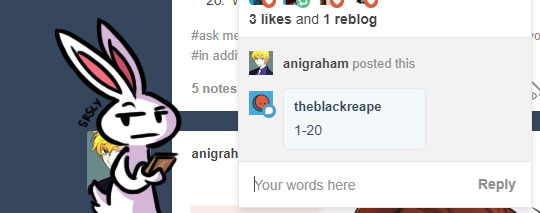
This is going to get long so, lol...
1. What’s your favorite system? 3.5. Or a stripped down pathfinder so there isn’t 9,001 classes to choose from. (And yes, I prefer it over the homebrew version I talk about sometimes, lol.) 2. What’s something you hope to do/accomplish in a D&D campaign? I have so many D&D bucket list items! First one that comes to mind is I hope to romance an NPC someday. May be setting myself up for heartbreak as surely the DM will have something horrible happen to said NPC, but ya know.
3. How important is a strong story line to you? It’s what I live for! I mean, it isn’t going to ruin my fun if the campaign doesn’t have a strong/deep story attached to it, but man do I eat it up if it does~ 4. What setting do you prefer playing in? Mid-level fantasy. I want some magic, I want unique creatures, and I want some gods, damnit! It doesn’t have to get too crazy or anything, but I want some magic in the world. 5. Have you or any fellow players have a character die? What happened? Yeh. My first character death was a stereotypical elven archer. It was a TPK to a scorpion. 2e is brutal, man. A character deaths you don’t know about... I played in a campaign where two players had their characters as siblings. Well. One fated day, the younger brother died. And he died after being given so many second chances, but after so many the DM (and even some of us players) were like...death happens. It was in a world where resurrection isn’t an option really. (He died to a mammoth that was infected and controlled by a parasitic “plant” thing that drains your CON.) While it was disappointing to the brother player, the sister player became super depressed. We ended the session early, but the next few sessions he just had a lot of trouble focusing and getting into it. It affected him pretty badly. We then took an extended break hoping the player would feel better after he took some time, but he didn’t. We ended the campaign because of it. 6. What is your favorite D&D monster or creature? THE FRICKEN TARRASQUE. 7. What’s your favorite race and class? Half-elf and Paladin! As rambled more in detail here. 8. Who is a favorite NPC you have encountered? Does the Triad count? Because that was pretty dang awesome and I love Ilmater forever. 9. Where do you get your inspiration to make a character? My brain. My process tends to be. . .I think of something I want to have in a character and then I build around that. Lore really helps me. Ok started with the idea that I wanted to play a serious character who doesn’t show much emotion, then he became a drow, and the rest followed. My skittish tiefling idea came to me because I decided, I should play a tiefling and reading the lore...I found it interesting the ways it describes tieflings handle prejudice and I felt like I never see or hear about the tieflings who kind of feel shame or hurt. Then the rest got built around that. 10. What’s one of your favorite character moments? I am still a fan of my overly optimistic and happy wood elf, hearing a terrible voice in his mind reminding him of some traumatic event, and then upon seeing a nothic and knowing that was the cause of it. . .saying “Please die now!” and shooting it at the surprise of the entire party. 11. What’s the best thing that has ever happened during a session? Being able to actually cry on cue for a scene with Morghain and being able to turn it off when the scene was over. I loved hearing everyone react! 12. What’s the worst thing that has ever happened during a session? Probably the character death I mentioned above. Just watching our friend and fellow player become so dejected and unable to keep playing. And it was doubly hard because that campaign had been going on for so long and so many of us were really enjoying our characters, really invested, and then we had to stop since someone just couldn’t keep going with the story. 13. What kind of characters do you typically create? ¯\_(ツ)_/¯ The closest I have to a “type” would be melee fighters. Definitely what I am usually comfortable with. But I actually try hard to play different things, even if I am only changing a handful of things. I like to try different races, classes, and different quirks/personalities. When playing with a new group I tend to go friendly/helpful fighter type so I can learn what I can and can’t get away with in the future, lol. Not everyone will be comfortable with me playing a former slave or a lying bitch. 14. What is your character’s backstory? Since I think you know most of my current character’s backstories. . .I will go with an oldie. A little gnome named Lorelai Brassgear!
She grew up in a very small town with a very large family. Her family were the owners of the local grain mill. Lorelai had bigger aspirations as she seemed to have a natural talent for using magic. . .something very rare among gnomes in her world. She became determine to someday go the mages college in the big city and learn to explain the workings of magic through the use of science and math. (Gnomes in her world are inventors and focus on science. They actually have a penalty when using magic.) One day after exploring a nearby cave-in with some of her friends from the town, they discovered that her entire village had been destroyed in an orc raid. All their families had been killed. Lorelai and her friends barely managed to get away and so began the start of her campaign. 15. Do you have any goals for your character? When it comes to Natali I just gotta accept I cannot have goals. Everything is a surprise with her and nothing goes as planned. My goal is not to die while fully expecting her to die.
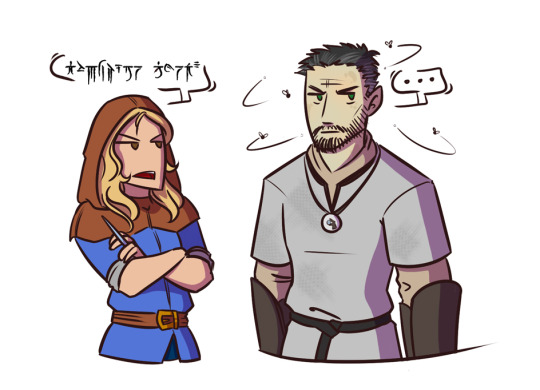
16. What is a song you associate to your character? Even though I haven’t played her very much, I have already associated one song with Cass. The English version of “aLIEz” done by Amanda Lee. I imagine Cass as a very conflicted and struggling woman, which I feel like this song captures. I am especially fond of the following lyrics...
I say “Liar!” I say “Rise in hell!” I am just about to burst as they say, “War!” I’ll wage war. I hate war. There’s no end to this...can’t you see that? 17. Does your character have any quirks? If so, what are they? My skittish tiefling sometimes slips into speaking in Infernal when he is talking to himself outloud. If anyone points this out to him, he will be a bit surprised and doesn’t believe it. His arcane focus is a medallion that he likes to fidget with from time to time. He also has a habit of arguing with his familiar (usually an owl) as if she was a person. 18. Do you have a certain accent for your character? No. I can’t do accents period, really. I might try adding a little something to the way I talk for certain characters, but I think I struggle with consistency. Loran I tried to speak higher and “friendlier.” With Ok I try to sound more monotone as I don’t imagine he would be very expressive in. . .anything. . .let alone his voice.
I can do three voices. An absurd “old man” voice, a weird. . .voice (that I use for like faeries), and my own voice. Haha. But if I can’t even mimic accents from around the world, I sure as hell can’t come up with voices for characters. 19. What character (or type of character) do you hope to play in the future? My skittish tiefling, Mr. Pemberley~! He doesn’t like being a teifling, feels bad about it, gets super nervous around new people and always assumes that other people expect the worst of him. He kept his nose in books and is a wizard as a result. . .and is most comfortable (and confident!) when playing with fire. Probably because he is a tiefling. . .but don’t suggest that to him. 20. What’s been your favorite campaign? Campaign would be the one we didn’t finished mentioned above, sadly. But I am also really enjoying Tomb of Annihilation.
#ask me#survey#questions#dungeons and dragons#I honestly don't mind being asked to do 1-20 in one go#usually I see these things and want to do them all anyway so...lol#And hey some questions can be answered multiple times for different characters!#long post
1 note
·
View note